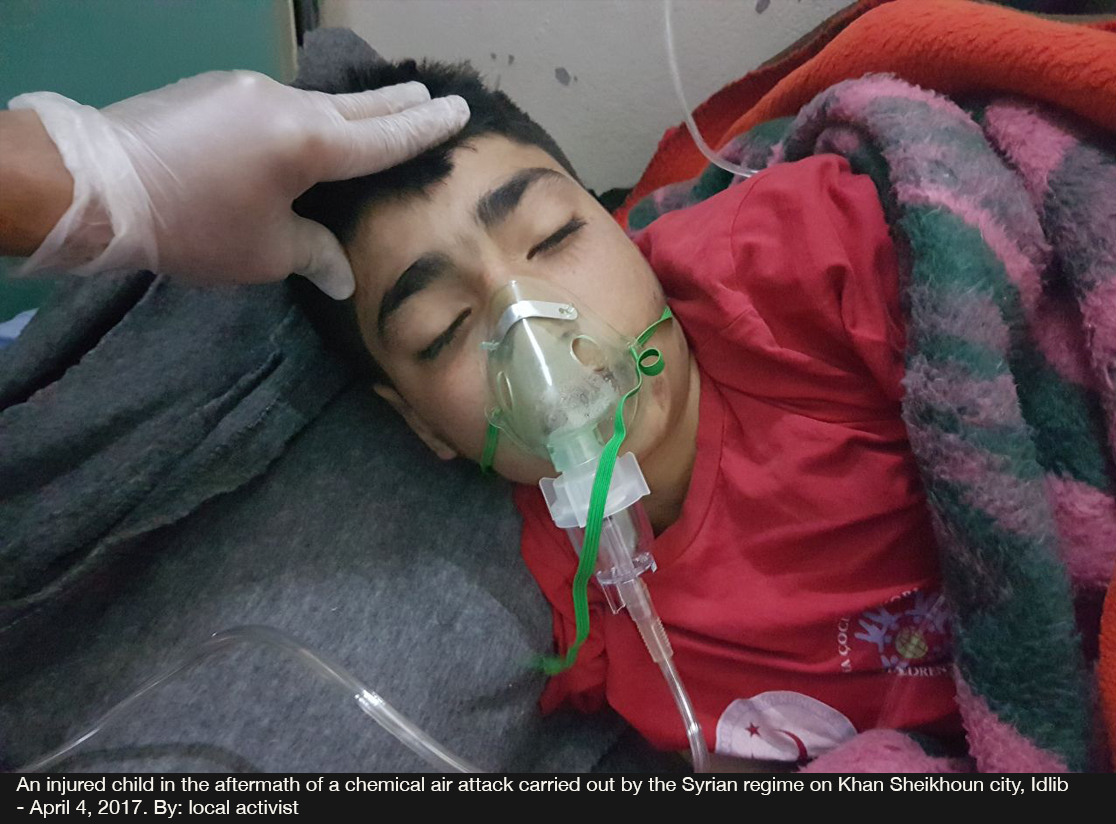Veto Shouldn’t be Used Pragmatically

The OPCW-UN Joint Investigative Mechanism (JIM) was established pursuant to Security Council Resolution 2235 in August 2015 following the Security Council’s downright failure to deter the Syrian regime from using chemical weapons in a widespread and frequent manner. Even though The Security Council has adopted two Resolutions referencing Chapter VII of the Charter of the United Nations -2118 on 27 September, 2013 following the Two Ghoutas attacks and 2209 on 6 March 2015- we recorded in SNHR database no less than 125 breaches of the former Security Council Resolution, 2118, through alleged chemical attacks that were carried out by Syrian regime forces in the period between the adoption of the Resolution and the establishment of the JIM.
Prior to the decision to establish the JIM, OPCW Fact-Finding Mission’s role was limited to determine whether chemical weapons were used or not. However, the UNHRC’s Commission of Inquiry on the Syrian Arab Republic have declared the Syrian regime responsible for using chemical weapons in several governorates in two reports, released on 13 August 2014 and on 13 August 2015 respectively, in addition to extensive reports by Human Rights Watch and Amnesty International in which the two organizations accused the Syrian regime of using chemical weapons in many and various incidents.
It is not inconceivable that Russia might have wanted to apply pressure on the Syrian-Iranian alliance in light of the great number of times it was embarrassed by the Syrian regime’s use of chemical weapons. Such an analysis, however, don’t have much grounds, given that the Syrian regime kept on using chemical weapons after the JIM was established, and even after a number of reports holding the Syrian regime responsible for three attacks were released by the JIM itself and, most recently, the attack on Khan Sheikhoun attack to a total of four attacks for which the Syrian regime was declared responsible. One can say that Russia wanted, in agreeing to an investigative mechanism to determine who was responsible, to pressure the Syrian-Iranian alliance into accepting certain agenda, but Russia certainly didn’t except that the Syrian-Iranian alliance would feel confident enough to use chemical weapons after the Mechanism was established, which they had done time and time again. We recorded, at SNHR, no less than 49 alleged chemical attacks carried out by Syrian regime forces after the JIM was released in August 2015. The JIM, on the other hand, have released seven reports so far addressing 11 chemical attacks that declared the Syrian regime responsible for four attacks, while ISIS, the report confirms, was responsible for two attacks.


